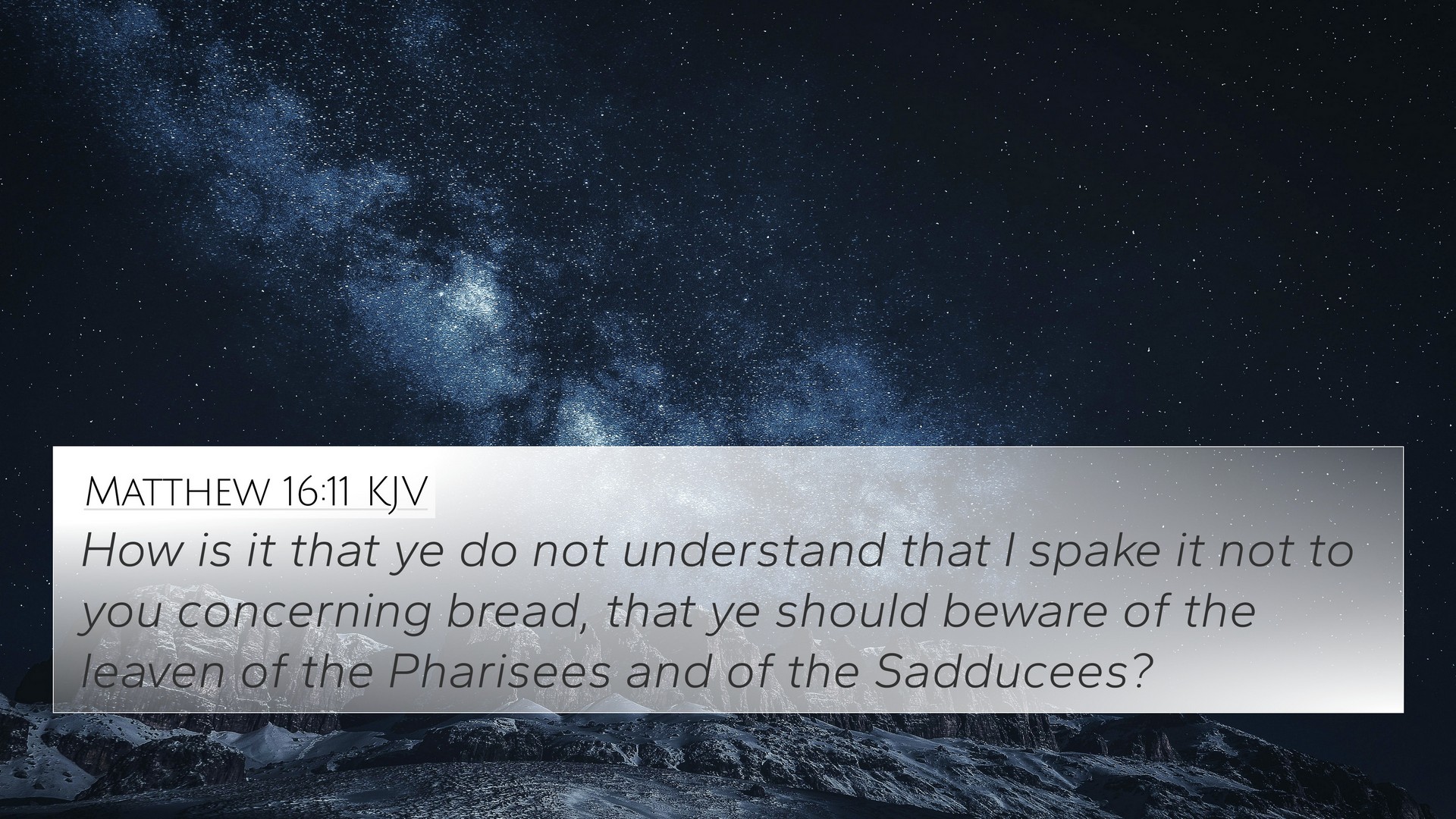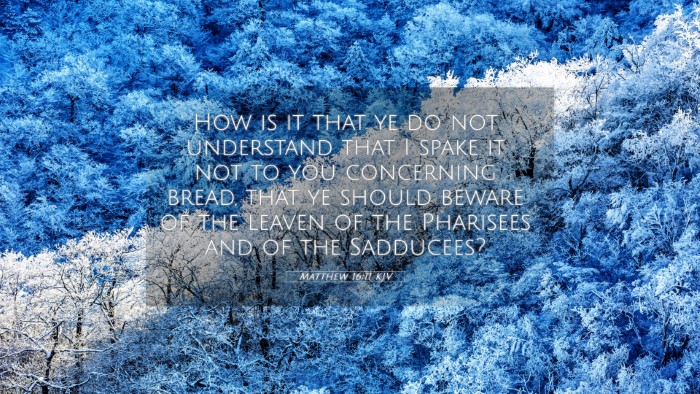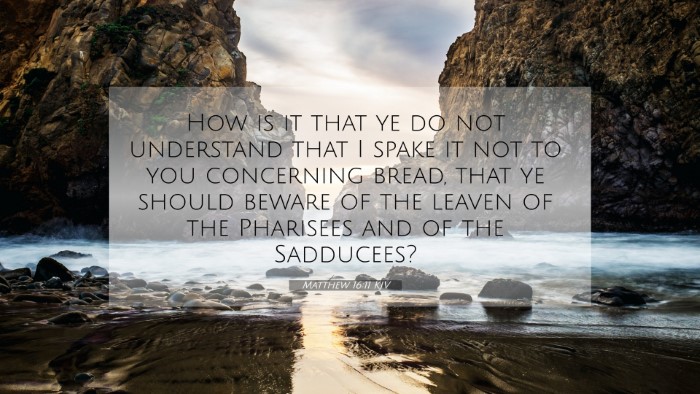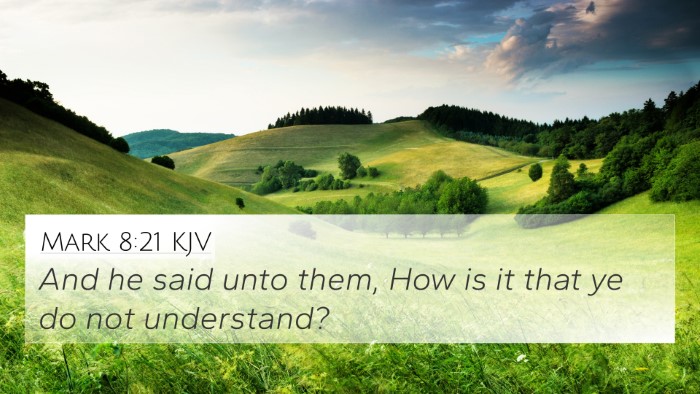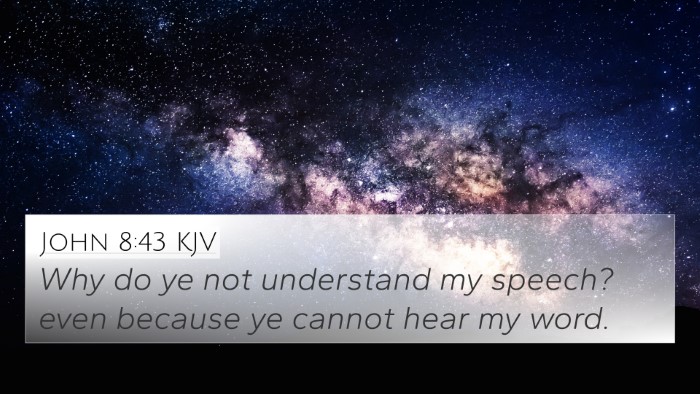Understanding Matthew 16:11
Matthew 16:11 states, “How is it that you do not understand that I did not speak to you concerning bread? But to beware of the leaven of the Pharisees and Sadducees.”
Contextual Overview
In this verse, Jesus is addressing His disciples' misunderstanding after a discussion regarding physical bread. This statement emphasizes a deeper spiritual teaching about the influence of the Pharisees and Sadducees. The "leaven" symbolically represents false teachings and corruption that can permeate the community of believers.
Commentary Insights
-
Matthew Henry:
Henry explains that Jesus is urging His followers to be cautious not only of physical needs but more critically of the spiritual dangers posed by religious leaders. He highlights the notion that the leaven signifies a pervasive evil that can infiltrate the community without vigilant discernment.
-
Albert Barnes:
Barnes points out that the disciples missed the metaphorical meaning of Jesus' words, focusing instead on physical needs. He stresses the importance of understanding Jesus’ teachings as a warning against adopting the deceptive practices of the Pharisees and Sadducees, who prioritized tradition over truth.
-
Adam Clarke:
Clarke elaborates on the concept of leaven in biblical literature, symbolizing sin and corruption. He suggests that Jesus aims to protect His followers from the doctrinal impurities demonstrated by the religious authorities of the time, suggesting their teachings could lead to spiritual decay.
Cross-References
Matthew 16:11 is interconnected with several other biblical passages that enhance understanding through cross-references:
- Luke 12:1: A warning against the leaven of the Pharisees, which is hypocrisy.
- 1 Corinthians 5:6-8: Paul discusses the metaphor of leaven related to sin and the need for purity among believers.
- Galatians 5:9: Paul similarly warns that a little leaven leavens the whole lump, showing the pervasive nature of sin.
- Mark 8:15: Jesus again warns the disciples to beware of the leaven of the Pharisees and Herod, emphasizing worldly influences.
- Matthew 23:13-15: Jesus' condemnation of the Pharisees for their hypocrisy and burdening others with false teachings.
- James 1:22: Encourages being doers of the word, not just hearers—linking to Jesus' call for discernment.
- John 6:32-35: Jesus identifies Himself as the true bread from heaven, contrasting with earthly bread.
Thematic Connections
This passage invites a comparative Bible verse analysis across multiple themes, essential for thematic Bible verse connections:
-
Understanding Symbolism: Leaven denotes subtle evil, seen throughout scripture as spiritual danger.
-
Influence of Religious Authority: Various passages illustrate how false teachings can arise from prominent religious figures.
-
Call to Discernment: Believers are urged to critically analyze teachings against the backdrop of Christ’s words.
-
Physical vs. Spiritual: Distinction between physical needs and spiritual truths underlines much of Jesus’ teaching.
Application and Reflection
Reflecting on Matthew 16:11 encourages believers to remain vigilant against teachings that do not align with the true message of Christ. Understanding the implications of “leaven” extends beyond merely ethical living; it includes a commitment to sound doctrine and the responsibility to discern what is spiritually nourishing.
Conclusion
The depth of Matthew 16:11 highlights the intricate connections between the teachings of Jesus and the life of His followers against the backdrop of historical religious authority. By utilizing tools for Bible cross-referencing, believers can uncover a wealth of meanings and applications that deepen their faith and understanding of scripture.
